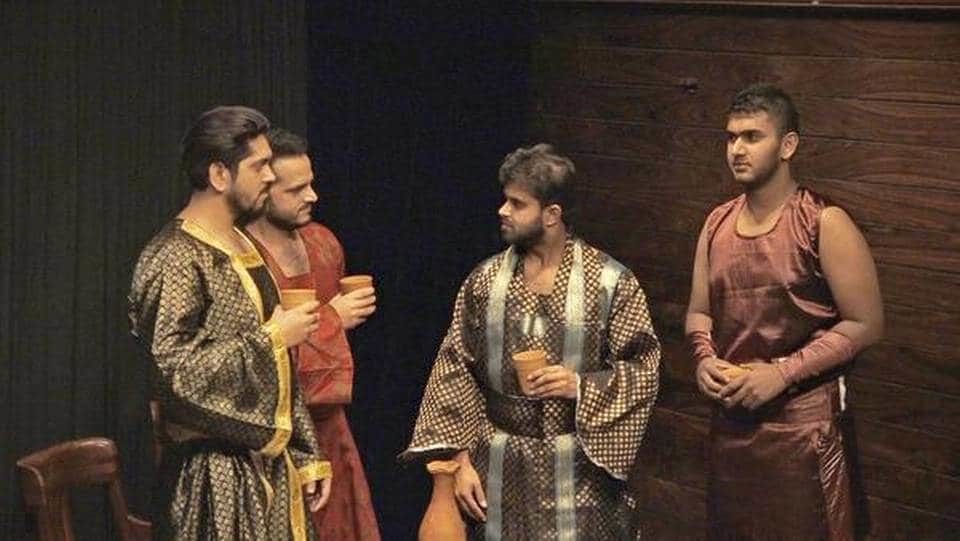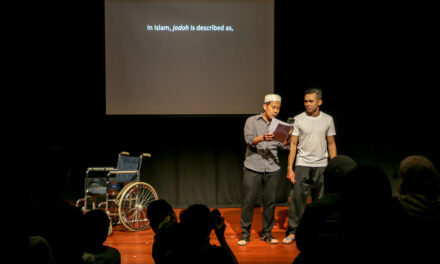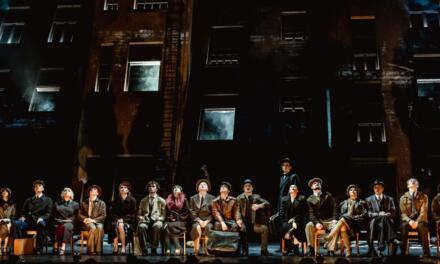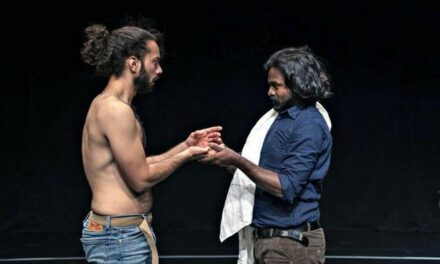Ajit Chitturi’s The Spartan Conspiracy brings to fore how the desire to control resources dictates armed conflict between nations.
A powerful story coupled with astute direction and convincing performances make Ajit Chitturi’s The Spartan Conspiracy, based on playwright Dr. Vithal Rajan’s work by the same name, worth a visit.
It is a humorous take on the alliance of Sparta, Mycenae and Ithaca kingdoms preparing to invade Troy. The play features many Greek mythological characters including Achilles, Helen, Clytemnestra, Agamemnon, Menelaus, Odysseus and others.
Following a brief narration and a Grecian dance by Neha Sahai to set the tone, this one-act play cuts to the scene wherein one sees Menelaus, Agamemnon and Odysseus, kings of Sparta, Mycenae and Ithaca pondering over a grave problem facing them while sipping wine. Poring over a map, they are figuring out the way to attack Troy.
As the audience wonders as to what all this is leading to, the story slowly unfolds making it clear the reason for all this planning. Troy which controls the olive oil trade and sea trade routes has raised the price of the commodity and also taxes on imports from other nations making it a double trouble for its trading partners. Making an appearance on stage is Achilles with the news of a further spike in the olive oil prices. In sync with modern times, Achilles is shown as an astute economist and less of the fearsome legendary warrior he is known to be. Brainstorming among the four throws up various options like trade conferences and uniting all nations against Troy—all of which are deemed ineffective for one or other reason.

Ajit Chitturi
Finally, Odysseus suggests that Helen wife of Menelaus should lay a honey trap for Paris, Prince of Troy during his visit to Sparta and elope with him. Brilliantly arguing his case like a politician, he says this will spur everyone to unite and fight against Troy thus breaking their stranglehold on olive oil and trade.
This underlying theme immediately connects with the audience as it highlights how wars have been fought from time immemorial — not for some noble reasons like truth, justice and freedom but for resources. Written during the height of the Gulf War, the tale is a direct take by Rajan on America’s invasion of Iraq for control of crude oil. The only difference is that crude oil has been replaced by olive oil.
“All wars from the beginning of time, from the many invasions that India has seen from the Frontier province to the present Syrian war, were ravaged for resources. Even the few fought for mere possessions of land too had the purpose of controlling strategic positions,” comments Chitturi. Stressing on how beautifully Rajan had merged the entire subject and portrayed them through characters of Homer’s Illiad, the director says he was very much attracted by his style of calling a spade, a spade. “This script has given me the opportunity to portray things as they are.”
Other elements of modern age make subtle appearance. Like characters being addressed by nicknames, so Achilles becomes Achi and Agamemnon Aggy while the scene where Iphigenia, King of Mycenae’s daughter arguing with him vociferously made many grown ups in the audience smile.
Humour is a strong point of this play as it delves on a serious issue without ever letting the audience get bored. The dialogues are crisp and laced with enough jest to evoke laughter For example Achilles remarks, “You can’t have a war without an economist,” or Helen wondering as to why spy networks are referred to as intelligence provide a light touch. “Today not many spend time to watch grim and serious portrayal of current issues on stage or screen. Serious subjects are very often accepted when narrated in a humorous form. It is difficult to find many scripts doing so. I therefore rate ‘The Spartan Conspiracy’ very high for its presentation of the grim issue of war and the reasons behind it in a humorous take.”
Staged in Delhi for the first time, the director was very impressed by the audience here. “They were great in appreciating the intellectual content of the play, grasping the undertones very well as well as enjoying the humour.”
Chitturi does well to create a certain mood of the play. “It helps in enabling them to identify with the content and the context. I attempted this through the prologue, the Grecian dance and the music rather than the sets. For the kings’ entry, I chose a classic instrumental ending the play with Al Stewart’s ‘Helen’ which seemed apt to me.”
The cast of Cacaphonee gave a creditable account of themselves even though they were working with Chitturi for the first time with Kavita Dabas as Helen, Roshan Singh as Menelaus, Ravi Ramachandra as Agamemnon, Abhishek Chakraborty as the royal servant and Gourab Banerjee as Odysseus standing out. Describing working with this young group as challenging, Chitturi says he took them through a series of workshops to hone their skills and work on their diction and getting them to think in English.
This review was originally posted at The Hindu. Reposted with permission of the author. To read the original article, click here.
This post was written by the author in their personal capacity.The opinions expressed in this article are the author’s own and do not reflect the view of The Theatre Times, their staff or collaborators.
This post was written by S. Ravi.
The views expressed here belong to the author and do not necessarily reflect our views and opinions.


















